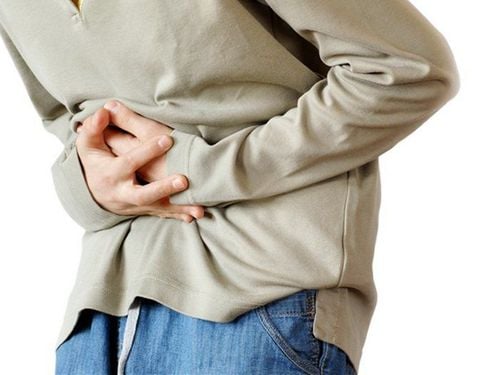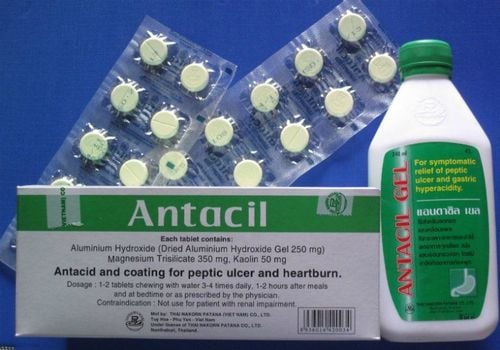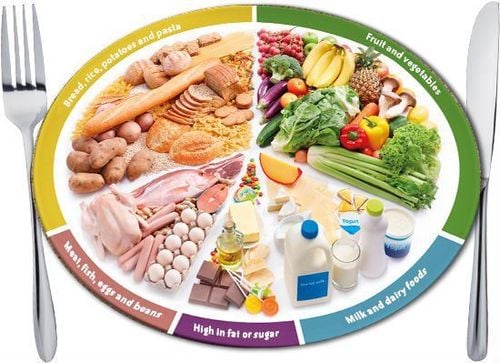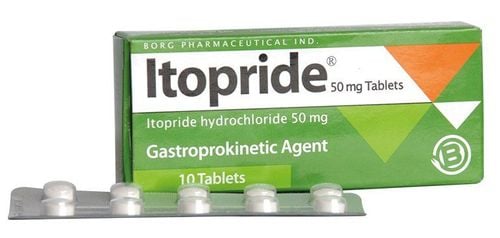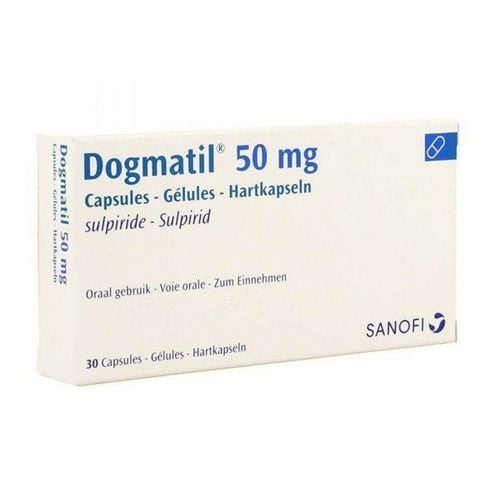The digestive system contracts to push food, gas, and liquids through the stomach and small intestine, creating rumbling sounds. The emptier the stomach, the louder the rumbling. However, if you hear rumbling sounds accompanied by discomfort in the abdominal area, your body might be experiencing symptoms of conditions such as irritable bowel syndrome or irritable colon. Let's explore what causes frequent stomach rumbling in the following article.
1. What Does Stomach Rumbling Indicate?
When your stomach makes continuous rumbling sounds, it is usually due to physiological reasons such as:
- Air Trapped in the Stomach: Eating too quickly or talking while eating can cause you to swallow more air than usual. This trapped air can cause loud rumbling sounds. Stomach rumbling occurs due to the movement of air, food, and liquids during the contractions of the smooth muscles around the digestive tract. Food can reduce the noise in the stomach and intestines, so when your stomach is empty, you will hear the rumbling more clearly. When the stomach has been empty for a long time, the muscles of the stomach wall contract more strongly than before. At that time, a lot of gas and digested food is compressed into the empty stomach, making the rumbling sound louder.
- The rumbling sound is a way for the body to clean itself, removing leftover food and bacteria. This process lasts an average of 10 to 20 minutes and can repeat every two hours until the stomach is refilled with food.
- Stomach rumbling is not a symptom of any disease but simply indicates that your body is hungry and that your digestive system is working well.
- Eating too much difficult-to-digest food, such as fried foods, foods high in animal fat, cereals, starches, or onions and garlic, can cause stomach rumbling after eating.
- Lying Down After Eating: Lying down immediately after eating can cause gas and stomach rumbling. This action can also lead to excess fat accumulation around the abdomen.
- Lack of Beneficial Gut Bacteria: A deficiency in beneficial gut bacteria can cause digestive disorders, making food difficult to digest, leading to gas, stomach rumbling, and flatulence.
- Carbonated Drinks and Alcohol: Drinking too many carbonated drinks, alcohol, or beer can cause continuous stomach rumbling and burping for several days.
For the above causes of stomach rumbling, you can completely manage at home. By changing your daily diet and lifestyle, the condition of stomach rumbling and flatulence will gradually disappear without the need for medical intervention.
However, if the rumbling sound occurs continuously, accompanied by lower abdominal pain for a long time, you may have typical digestive system diseases. You should visit a hospital or medical facility for timely examination and treatment:
- Irritable Bowel Syndrome (IBS): Common in the elderly and young children. Besides lower abdominal pain and rumbling, other symptoms include diarrhea, constipation, cramping, and bloating.
- Irritable Colon: Common in people aged 20 to 40. Symptoms include lower abdominal pain and rumbling, heartburn, acid reflux, bloating, abdominal pain, and bowel movement disorders.
- Crohn's Disease: A chronic inflammatory bowel disease affecting the digestive tract. Symptoms include lower abdominal pain and rumbling, diarrhea, weight loss, fatigue, fever, nausea, vomiting, and anemia. This condition can also lead to liver damage, osteoporosis, and colon cancer.
- Gluten Sensitivity: People with stomach ulcers or other autoimmune disorders may be unable to process gluten, causing stomach rumbling and flatulence.
- Acid Reflux: Stomach rumbling, flatulence, or nausea after meals can be due to acid reflux or indigestion. Stomach acids rise into the esophagus, caused by overeating, smoking, drinking alcohol, obesity, and pregnancy in women over 35.
2. How to Address Stomach Rumbling After Eating
Depending on the cause of stomach rumbling after eating, there are various methods to address this issue.
- Unhealthy Eating Habits: If you have a habit of eating quickly or eating while talking or working, you are likely swallowing a lot of air. This excess air can cause your stomach to bloat. Therefore, you should develop the habit of eating slowly and focusing on your meal.
- Lactose Intolerance: For older adults, the body may reduce the production of lactase enzymes needed to digest dairy products. If you experience stomach rumbling and gas after drinking milk, you should stop consuming milk for a few days to see if there is any difference.
- Hormonal Changes: Menopause or hormonal changes can also cause stomach rumbling and gas. The solution is to exercise regularly to prevent bloating and improve bowel movements.
- Eating Too Much Fiber: Eating too little fiber can cause constipation and lead to bloating. The bacteria in your gut can only digest fiber to a certain extent, which can cause gas. Therefore, you should consume fiber-rich foods in moderation.
- Eating Sugary Foods: The bacteria in your small and large intestines digest sugar and produce gas. If you eat too much sugar, it can cause stomach rumbling and gas. Therefore, you should limit your intake of sugary foods and sweets.
- Smoking: Smokers tend to inhale a lot of air, which can cause stomach rumbling. The clear solution is to quit smoking or reduce the number of cigarettes you smoke each day.
- Irritable Bowel Syndrome (IBS): This condition combines lower abdominal pain with cramping and is caused by an intestinal infection or even stress. To prevent this condition, you should eat smaller meals and avoid caffeinated drinks that stimulate the intestines.
- Bacterial Imbalance: This occurs when gut bacteria multiply excessively. This condition causes bloating and an imbalance of bacteria in the digestive tract, which can happen when you have the flu or an infection. To solve this imbalance, avoid foods like butter, cherries, plums, beans, lentils, soybeans, wheat, onions, and garlic for a few days.
Stomach rumbling is a common digestive symptom caused by various factors. Depending on the cause, there are appropriate ways to manage and treat it. If home remedies are not effective, you should visit a medical center for examination and treatment.
To arrange an appointment, please call HOTLINE or make your reservation directly HERE. You may also download the MyVinmec app to schedule appointments faster and manage your reservations more conveniently.




